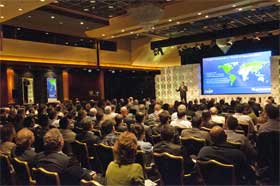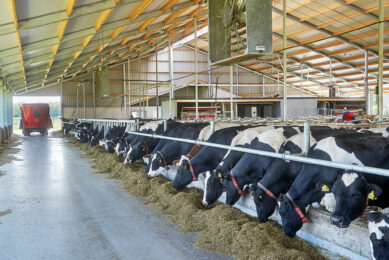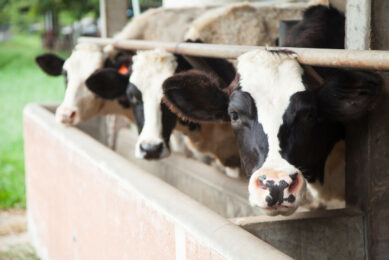Provimi seminar: Animal nutrition is the key

More than 250 international nutrition and animal production professionals gathered for Provimi’s second animal nutrition seminar in the Netherlands (5-7 June).
Following the theme of the three-day programme, that focused on nutrition the key to unlocking genetic potential and maximising the performance of livestock, the latest research findings, developments and techniques were discussed.
“With a world population currently around 7 billion and predicted to increase to 9 billion by 2050, the demand for meat, milk and eggs will exceed supply unless production techniques can be improved,” said Adriaan Smulders, Provimi’s strategic marketing and technology director. “Techniques and innovations to improve feed efficiency and animal production systems will contribute to the increasing demand globally for animal protein.”
Smulders continued:“And as genetics keep progressing, so must nutrition. This starts with the need to make better use of raw materials – some of which are relatively scarce – and develop new techniques for animal feed production.”
Professor Stefanie Boring from the University of Osnabruck, Germany, highlighted the demands by society for sustainable food production and within this she included more than the environment. “Food production must meet social and economic needs as well as the environment. Improved efficiency means more food of good quality and price without harming the environment. It will be a balance and there will be some compromises.”
“The western world can offer the technologies to increase production but to fill the gap we would need to improve production efficiency,” continued Professor Boring.
The audience followed a series of general nutrition presentations on day 1 with species specific programs on days 2 and 3.
In all cases, poultry, swine and ruminants, speakers discussed the latest findings in nutrition and the role this plays in improving feed efficiency, fertility, growth and production using sustainable and efficient systems.
Provimi’s swine technology manager Albert van Dijk discussed how improved milk supplies and provision of creep feed pre weaning and then a continuation of milk post weaning can improve piglet growth. “Despite increased litter size in the past 10 years, piglet growth rates have not increased,” he said. “We need to adopt feeding regimes that can improve piglet growth rates to their genetic potential.”
Similarly, in the ruminant papers, Professor Roel Veerkamp from Wageningen University discussed the need to match management and nutrition to the modern cow’s requirement, bearing in mind the huge contribution that genetics has made to her production potential in the past two decades.
“There’s no division – everything is genetics and nutrition,” he said. “But one missing link is a selection tool for feed efficiency,” he added and suggested that genomics and the use of DNA markers may be at some stage be able to plug this gap enabling even more progress to be made.
Sander van Zijderveld, ruminant technology manager for Cargill Animal Nutrition, supported the need for increased feed efficiency in ruminants and the significant gains to be made by adopting techniques that would increase digestibility of the ration. “A 5% increase in ration digestibility can increase milk production by almost 4kg a day,” he added. “Using innovations that can improve fibre digestibility have been found to be an efficient method of achieving this.”
According to John Halley, global head of nutrition at Aviagen, nutrigenomics is a new technology that genetics companies in the poultry sector are using to help select products that are required by customers. “This technology is also providing more information specific to the birds’ nutritional requirements and it will help producers provide the most appropriate mix of rations, supplements and bioactive compounds.”
The seminar provided delegates with a number of challenges, the main one being the need to develop and improve production to feed a growing population where a greater proportion were demanding more animal derived protein – meat, milk and eggs.
With breeding companies continuously developing genetics that have the ability to turn feed into protein more efficiently, the seminar delivered clear messages that, as a feed industry, it is necessary to meet the demands of the modern genotype. Today’s livestock is frequently linked to a high performance athlete and needs the right conditions to perform to the top of their ability.
Dealing with specific aspects of production, the seminar program provided up to date developments in animal nutrition and feeding management and how these could be applied in different sites around the world.











